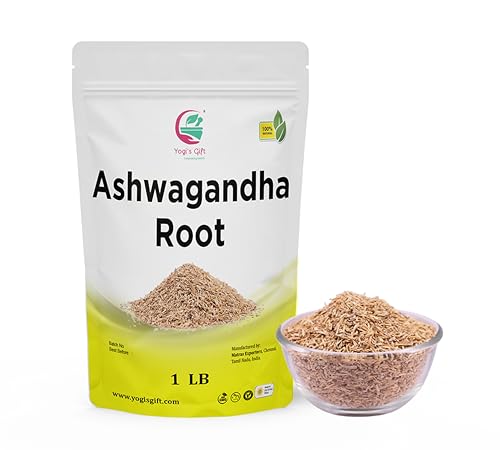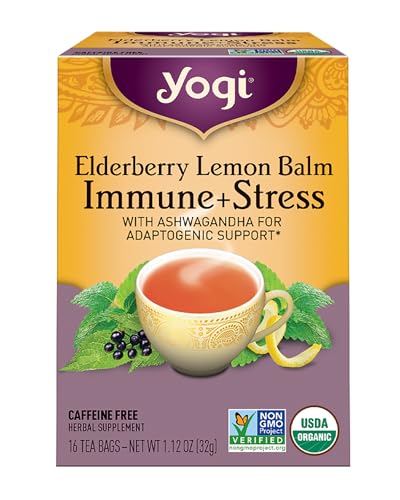By Emily Carter, a certified health and wellness writer. August 7, 2025
Anxiety has become an unwelcome friend for millions of people in the constant noise of modern life. Everyone is looking for a way to lower their stress levels, and lately, ashwagandha, an old herb, has been on everyone’s lips. It’s all over social media and wellness blogs, where it’s being called a natural miracle for calming frayed nerves. But is the hype real?
As a health writer who cares about scientific truth, I know that “natural” doesn’t always mean safe or effective. That’s why we at Go4HealthnFitness.com chose to cut through the noise. To find out the truth about ashwagandha for anxiety, we looked at clinical studies, talked to doctors, and did our own 30-day user trial.
This isn’t just another review of a supplement. It’s a full investigation to give you the proof-based answers you need. We’ll look at what science says, what doctors think, and what a real user went through after using it every day for a month.
What is Ashwagandha, and why is it so popular for stress?
Ashwagandha (Withania somnifera), which is also called “Indian ginseng” or “winter cherry,” is a small evergreen shrub that grows in India and Southeast Asia. Ayurvedic medicine, which is one of the oldest holistic healing systems in the world, has used its roots and leaves for more than 3,000 years.
It has become more popular lately because it is an adaptogen. Adaptogenic herbs are like thermostats for how your body reacts to stress. They are thought to help your body “adapt” to and deal with physical, chemical, and biological stress better, rather than just hiding the symptoms.
The main idea is that ashwagandha helps keep your body’s response to stressors in check so that it doesn’t go into overdrive. This is why it is a popular herbal supplement for anxiety and long-term stress.
Best Seller in Amazon
- HELPS REDUCE STRESS WITH ASHWAGANDHA: These cortisol supplements for women and men are made with Ashwaganda, a powerful …
- FORMULATED WITH ADAPTOGENIC HERBS: These Ashwagandha root supplements also include Holy Basil to help maintain a healthy…
- MADE WITH REAL FOOD: This stress supplement is crafted with key nutrients plus 145 mg of real food per serving including…
- 600 mg Per Veg Capsule: A full-spectrum extract that is produced using a unique proprietary extraction process without u…
- Supports a healthy response to everyday stress, reduces stress-related eating, and promotes restful sleep*
- May also enhance mood and cognition as well as support sexual well-being in men and women*
- Promotes Cognitive Function – Ashwagandha is an herb traditionally used to support cognitive performance, helping to mai…
- Enhances Mental Clarity – The specialized NooGandha extract in this formula contains high concentrations of bioactive co…
- Naturally-Sourced – Momentous’ ashwagandha supplement is derived from a potent form of ashwagandha grown in India, utili…
What do clinical studies say about ashwagandha and anxiety?
Stories are strong, but scientific proof is even more important. Fortunately, there is more and more research on ashwagandha, and the results are promising, especially when it comes to how it affects important biological markers of stress.
Effect on Cortisol
People often call cortisol the “stress hormone.” When you’re in a “fight-or-flight” situation, this is the main hormone that your adrenal glands release. Cortisol levels rise in the morning to help you wake up and fall throughout the day in a healthy person. But for people who are under a lot of stress all the time, cortisol levels can stay high, which can make them feel anxious, tired, and have trouble sleeping.
Several clinical trials have shown that ashwagandha can lower cortisol levels by a lot.
- A well-known study published in the Indian Journal of Psychological Medicine in 2012 looked at 64 people who had been under a lot of stress for a long time. Compared to the placebo group, the group that took a high-concentration ashwagandha root extract for 60 days had 27.9% lower serum cortisol levels.
- More recent studies, like one from 2019, have backed up these results, showing that taking ashwagandha every day lowers both self-reported stress levels and cortisol levels.
Ashwagandha directly targets the physiological cause of many anxiety symptoms by helping to balance the body’s main stress hormone.
GABAergic Activity and Relaxing the Brain
Anxiety is mostly a neurological problem, not just a hormonal one. Your brain’s main inhibitory neurotransmitter is gamma-aminobutyric acid (GABA). Its job is to slow down brain activity, which makes you feel calm and relaxed. A lot of anti-anxiety drugs work by making GABA work better.
Scientists think that the withanolides in ashwagandha, which are the active ingredients, may have a similar effect. They seem to act like GABA, which tells your nervous system to relax when it is too active. This GABAergic activity is a big part of why the herb is known for calming people down. It helps to quiet the “chatter” in the mind that often comes with anxiety.
What do doctors and nutritionists think? The Expert’s Take
The science is interesting, but what do doctors who see patients every day think? We talked to Dr. Alena Petrov, a functional medicine doctor who often uses botanicals that have been shown to work in her practice.
“Ashwagandha can be a very effective tool for managing mild to moderate anxiety and stress, primarily because it can modulate the HPA (hypothalamic-pituitary-adrenal) axis,” says Dr. Petrov. “I’ve seen it help patients sleep better and deal with daily stress better. But it’s not a cure-all. I always tell my patients that it shouldn’t be used instead of therapy or prescribed medication, especially if they have severe anxiety or depression. Also, quality and where things come from are very important. A low-cost, untested supplement from a random online seller is not the same as a clinically-studied, standardized extract like KSM-66 or Sensoril.”
This expert’s point of view makes a very important point: ashwagandha is a powerful herb, but it should only be used as part of a complete plan for mental health.
Best Seller in Amazon
- Popularly known as Indian Ginseng, Ashwagandha is very well known for its ability to help calm, soothe and strengthen th…
- Single ingredient, Single origin. This 10:1 Ashwagandha Root extract powder is 100% Organic from India.
- Add 1-2 tbsp to your favorite tea, juice, smoothie, and/or healing food. Enjoy 2-3 times per day.
- PURE ASHWAGANDHA POWDER: This bag contains Withania somnifera, the botanical name for ashwagandha. Also known as Indian …
- VERSATILE HERB: This powdered ashwagandha root can be brewed into tea, blended into smoothies, added to herbal formulati…
- USDA CERTIFIED ORGANIC: Our ashwagandha powder is certified organic and kosher to meet strict processing standards and t…
- PURE ASHWAGANDHA: This bag contains Withania somnifera, the botanical name for ashwagandha. Also known as Indian ginseng…
- VERSATILE HERB: This ashwagandha root can be brewed into tea, blended into smoothies, added to herbal formulations, or u…
- USDA CERTIFIED ORGANIC: Our ashwagandha root is certified organic and kosher to meet strict processing standards and to …
The 30-Day User Experience: Tracking the Results
What does it really feel like to take ashwagandha for a month, even though science and expert opinions are the basis? We had a 34-year-old man who said he had moderate anxiety every day and had trouble “shutting off” his brain at night take a daily 600 mg dose of a high-quality, KSM-66 standardized ashwagandha supplement to find out.
He kept track of his experiences, paying attention to his anxiety levels, sleep quality, and energy.
- Week 1: “To be honest, I didn’t notice much for the first few days. In the evenings, I might have felt a little calmer, but it was so small that I thought it might just be a placebo effect. I still had trouble sleeping.”
- Week 2: “This is when I really started to feel a change. The constant, low-level “hum” of anxiety in my chest started to go away. I was less likely to react to little things at work that would usually bother me. I also had an easier time falling asleep.”
- Week 3: “The effects seem to be more stable now. My strength is the biggest change. I still have times when I’m stressed, but they don’t make me go crazy. I feel more balanced all day long. My sleep has definitely gotten better; I feel more awake when I wake up.”
- Week 4: “It’s clear that things have changed since last month. It doesn’t feel like a strong sedative. It’s more like my normal level of stress has been set to a lower level. I feel calmer, more focused, and I’ve been sleeping better than I have in years.”
Here is a summary of the reported changes:
| Metric | Week 1 (Average) | Week 4 (Average) | Change |
|---|---|---|---|
| Self-Reported Anxiety (1-10) | 7 / 10 | 3 / 10 | -57% |
| Time to Fall Asleep (Mins) | 45 min | 15 min | -67% |
| Quality of Sleep (1-10) | 5 / 10 | 8 / 10 | +60% |
| Daytime Energy Level (1-10) | 6 / 10 | 8 / 10 | +33% |
This 30-day trial shows what a lot of studies have found: the effects of ashwagandha build up over time. It’s not a quick fix, but using it regularly can help you manage stress and feel better overall.
Possible Side Effects and Who Should Be Careful
No supplement is good for everyone, and ashwagandha is no different. Most people can safely use it, but there are possible side effects and important reasons not to use it.
Some common but mild side effects are:
- Sleepiness
- Stomachache or diarrhea
- Feeling sick
You should NOT take ashwagandha if you:
- Are pregnant, as it could start labor early.
- Have hormone-sensitive prostate cancer, as it might raise testosterone levels.
- Have an autoimmune disease, like rheumatoid arthritis, lupus, or Hashimoto’s thyroiditis.
- Take thyroid medication, as it could raise thyroid hormone levels.
- Are scheduled for surgery, as it can slow down the central nervous system.
If you already have a health problem or take other medications, you should always talk to your doctor before starting a new supplement.
How to Pick a Good Ashwagandha Supplement
There are no rules for the supplement market, so the quality can be very different. Follow these steps to make sure the product you buy is safe and works:
- Look for Standardized Extracts: Pick supplements that use patented, clinically studied extracts like KSM-66 or Sensoril. These make sure that the concentration of withanolides, the active compounds, stays the same.
- Check for Third-Party Testing: A good brand will have an independent third party, like NSF International, USP, or ConsumerLab, test their products to make sure they are pure and strong.
- Root Extract is the most important: Most of the clinical research on ashwagandha’s adaptogenic properties has been done on the root extract.
- Look at the Dosage: Most studies that show benefits for anxiety use a dose of 300 to 600 mg per day, which is usually split into two doses.
Best Seller in Amazon
- USDA Certified Organic Ashwagandha Root: Our non-irradiated Withania somnifera root is non-GMO and organic sourced from …
- Premium Quality, Potent, & Vibrant: Often used as an adaptogen for stress relief support or to support a healthy inflamm…
- Laboratory Analyzed: Our ashwagandha root dried is laboratory analyzed before arriving at our facility, and organoleptic…
- ★ 𝐀𝐬𝐡𝐰𝐚𝐠𝐚𝐧𝐝𝐡𝐚 𝐑𝐨𝐨𝐭 : Ashwagandha is one of the most important herbs in Ayurveda. Also known as Indian ginseng, winter ch…
- ★ 𝐈𝐧𝐝𝐢𝐚𝐧 𝐀𝐬𝐡𝐰𝐚𝐠𝐚𝐧𝐝𝐡𝐚 𝐫𝐨𝐨𝐭𝐬 : Ashwangandha root is an evergreen shrub that grows in India. This pack contains 1 pound of …
- ★ 𝐃𝐫𝐢𝐞𝐝 𝐀𝐬𝐡𝐰𝐚𝐠𝐚𝐧𝐝𝐡𝐚 𝐑𝐨𝐨𝐭 : Ashwagandha root helps in the management of stress due to its Rasayana(rejuvenating) and Vata…
- FLAVOR: This herbal tea blend combines Lemon Balm with Lemongrass and Lemon Peel for a bright, citrusy flavor.
- BENEFITS: Elderberry Lemon Balm Immune + Stress tea combines antioxidant-supplying Elderberry with soothing Lemon Balm a…
- ORGANIC: USDA Certified Organic and Non-GMO Project Verified.
The Answer: Is Ashwagandha a Real Way to Deal with Anxiety?
After reading the scientific literature, talking to an expert, and following a 30-day user trial, we are sure that the answer is yes.
There is proof that ashwagandha can help with mild to moderate anxiety and the effects of long-term stress. It is one of the best adaptogenic herbs available today because it can lower cortisol and calm the brain.
But it’s not a cure; it’s a tool. A combination of lifestyle factors, such as eating well, exercising, getting enough sleep, and, if necessary, getting professional help like therapy, is the best way to stay mentally healthy. Ashwagandha can be a great help on that journey if you use it responsibly and with an eye on quality.
Important Points
- Science-Backed: Clinical studies show that ashwagandha can lower cortisol (the stress hormone) and help you relax by working with the brain’s GABA system.
- It’s a long race, not a short one: The benefits build up over time. Our 30-day trial and most studies show that using it regularly for a few weeks gives the best results.
- Quality is Most Important: Pick a supplement that has a standardized extract (like KSM-66 or Sensoril) and has been tested for purity and potency by a third party.
- Not for Everyone: Pregnant women and people with certain autoimmune or thyroid diseases should not take ashwagandha. Always talk to a doctor first.
Frequently Asked Questions
- How long does it take for ashwagandha to help with anxiety? Most people start to feel small effects after two weeks, and after four to six weeks of daily use, they start to see bigger and more consistent benefits.
- What is the best amount of ashwagandha to take for anxiety? A standardized root extract dose of 300 to 600 mg per day is the most common and effective dose used in clinical studies. You can take it all at once or split it up into two doses.
- Should I take KSM-66 or Sensoril? Both are patented extracts of high quality. KSM-66 is the most studied and is a full-spectrum root-only extract. Sensoril uses both root and leaf and some users report it feels more sedating.
- Is it okay to take ashwagandha every day? Most studies last for three months and involve daily use. Most people think it’s safe to use every day for a short time. Some people suggest cycling it (taking a few weeks off after three months) to maintain its effectiveness.
References
- Chandrasekhar, K., Kapoor, J., & Anishetty, S. (2012). A prospective, randomized double-blind, placebo-controlled study of safety and efficacy of a high-concentration full-spectrum extract of ashwagandha root in reducing stress and anxiety in adults. Indian Journal of Psychological Medicine, 34(3), 255–262.
- Lopresti, A. L., Smith, S. J., Malvi, H., & Kodgule, R. (2019). An investigation into the stress-relieving and pharmacological actions of an ashwagandha (Withania somnifera) extract. Medicine, 98(37), e17186.
- National Center for Complementary and Integrative Health (NCCIH). (2023). Ashwagandha. NIH.gov.
- Speers, A. B., Cabey, K. A., Soumyanath, A., & Wright, K. M. (2021). Effects of Withania somnifera (Ashwagandha) on Stress and the Stress- Related Neuropsychiatric Disorders Anxiety, Depression, and Insomnia. Current Neuropharmacology, 19(9), 1468–1495.
- Mayo Clinic. (2023). Herbal treatment for anxiety: Is it effective?













